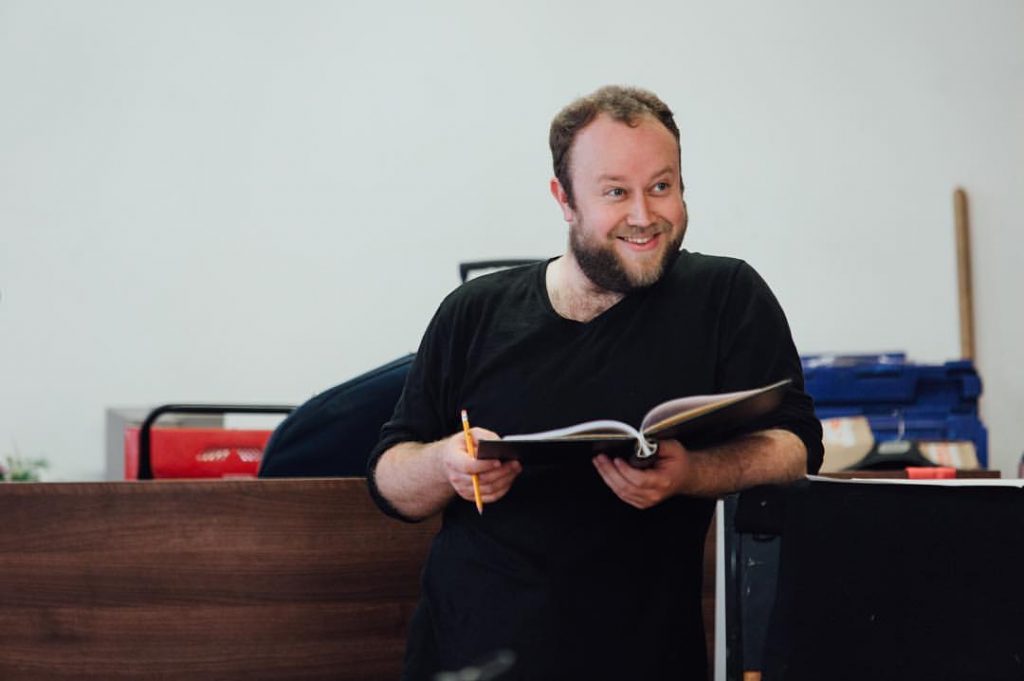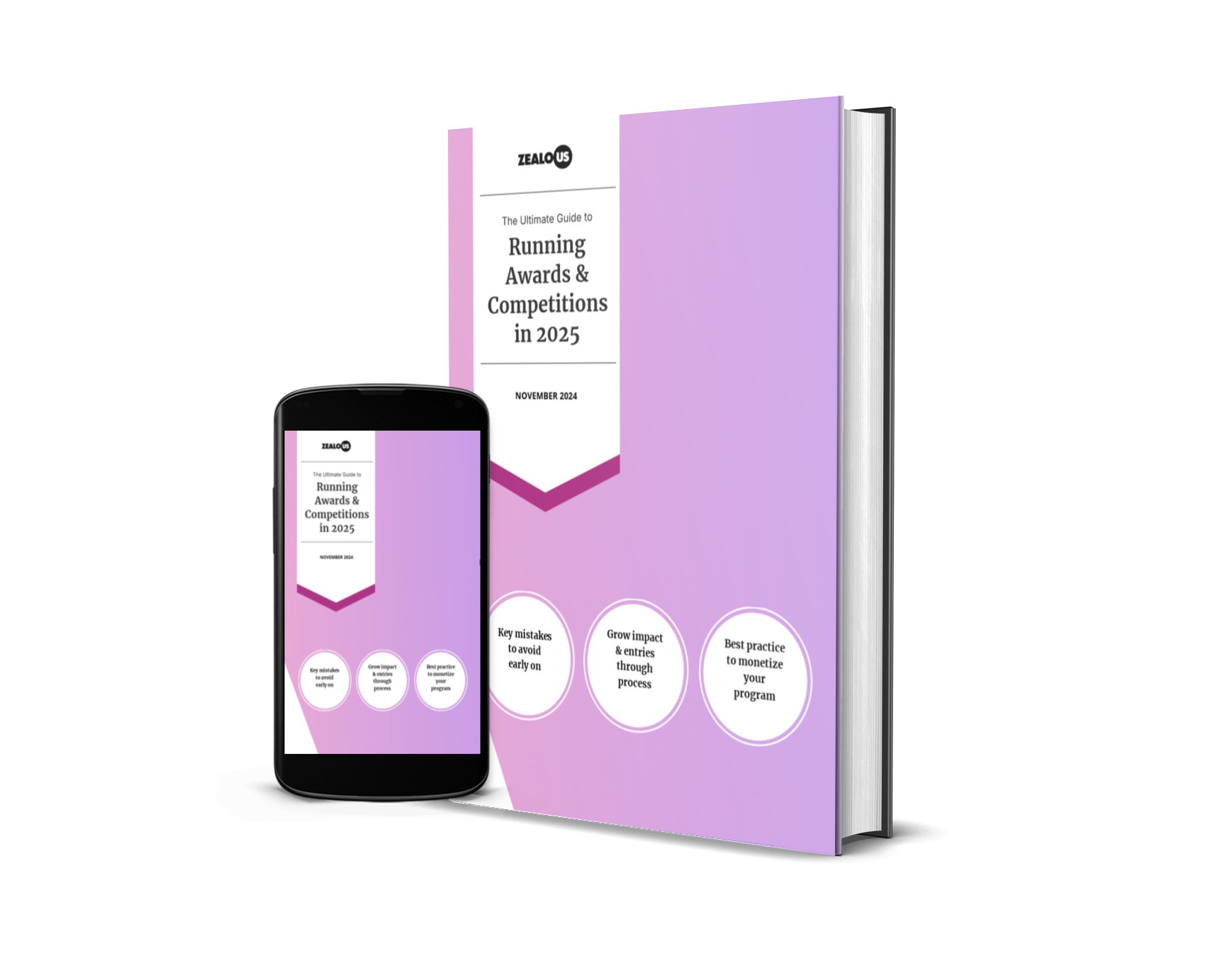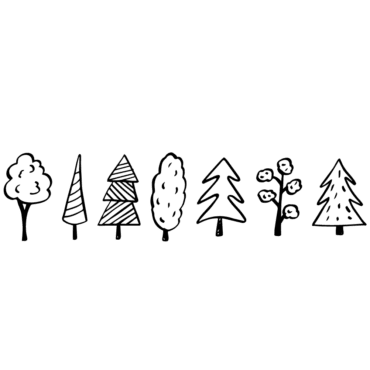www.neilkelso.co.uk
Follow Neil on Twitter / Facebook
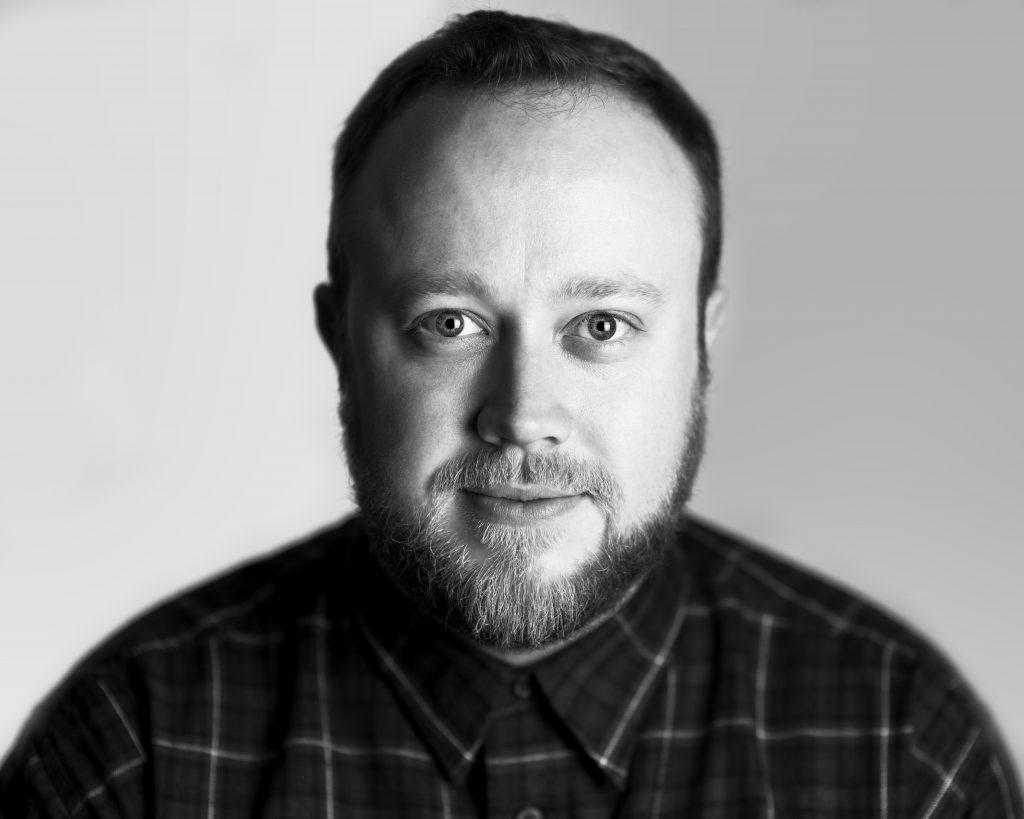
Hi Neil! You’ve been described as a “master storyteller” with “incredible stage presence”. What’s your secret to engaging an audience?
Hello! Well it’s a big topic but I think the root of it all is to offer something that your audience will find profoundly interesting. Ideally something irresistible. An intriguing promise captures an audience’s attention. That promise might even be unspoken – a twinkle in the eye or an intriguing outfit. We might appeal to their need for love, adventure, laughter, safety, money, esteem, belonging, or some other personal desire. That’s where engagement begins I think.
You’ve spoken before about “what if” and the power of invisible connections as part of your creative process. Can you tell us more?
Asking “what if” is a kind of magic phrase. It engages our curiosity, it invites dialogue, it forces us to challenge our assumptions. Another place I look for inspiration is unseen forces. Gravity, magnetism, love, cause and effect, karma, synchronicity, the past and the future. Those all fascinate me.
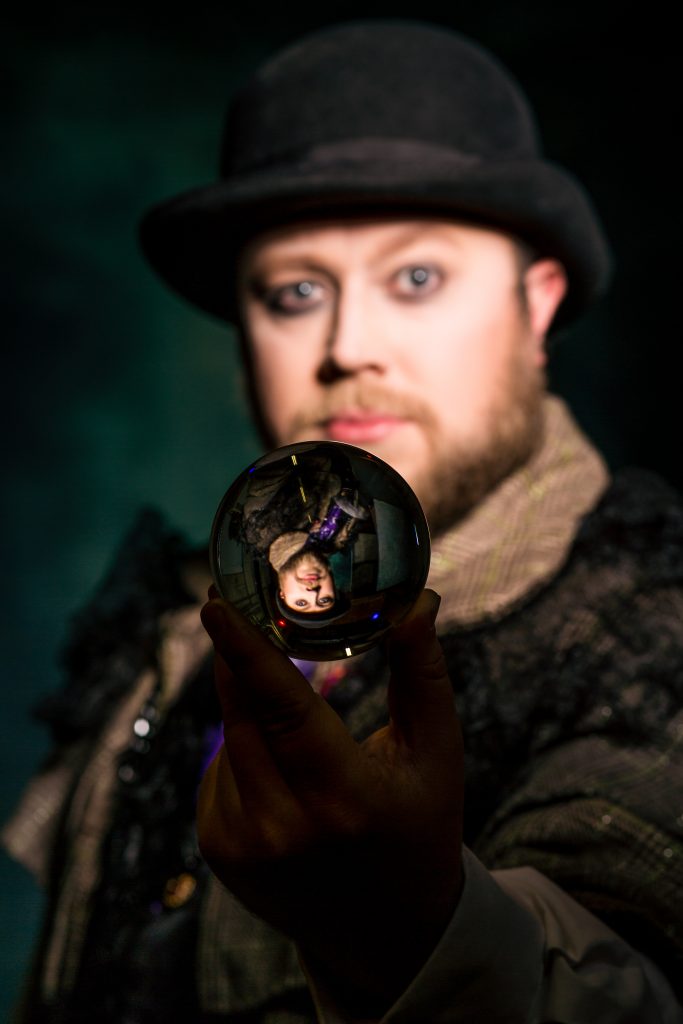
Have you always been drawn to performance? How did your creative journey start?
Not particularly. I don’t like being the centre of attention. I always loved stories though – at five I had already memorised Roald Dahl’s poems. I also read every joke book I could get my hands on – jokes delightfully construct something then subvert it. When I was six or seven I discovered the piano-playing Chopin is like a massage for my soul and time disappears when I sit at the piano. Then I partially ran away to the circus. I trained as a juggler at L’Ecole de Cirque de Bruxelles with Arcadii Poupon – one of the greatest juggling teachers of all time. Through juggling I met ventriloquists, mimes and magicians. I loved all those “allied arts” so much I dedicated myself to learn each discipline.
Comedy, Ventriloquism and Magic were different to anything I’d done before – they are incomplete until you have an audience to believe in the illusion or moment you are creating. They’re like painting directly into the minds of the audience. So to master them I had to start performing to audiences. By my early teens I had performed recitals in Belgian concert halls, been a juggler and clown in Hungary, Germany and France, and my piano teacher entered me into a few music competitions in which I won a few trophies and prizes. It wasn’t until I was in my late teens I realised that my audience were keen to hear my perspective on the world and topics that were close to my heart. That’s what my Edinburgh shows were about in 2011 and 2012. Artists, producers and scientists started reaching out to collaborate with me on their work, and that took me to the Royal Institution and Poland, and on a UK tour. That has all grown into me co-creating political theatre and cabaret shows, and to have organisations bring me in as an expert to help them to be more magical, more innovative, and to connect better.
I’ve never done it for the applause or the attention, but it is rewarding knowing I’ve started some interesting conversations, been part of some positive messages, or inspired people to change and explore. It feels a very authentic way for me to earn my living.
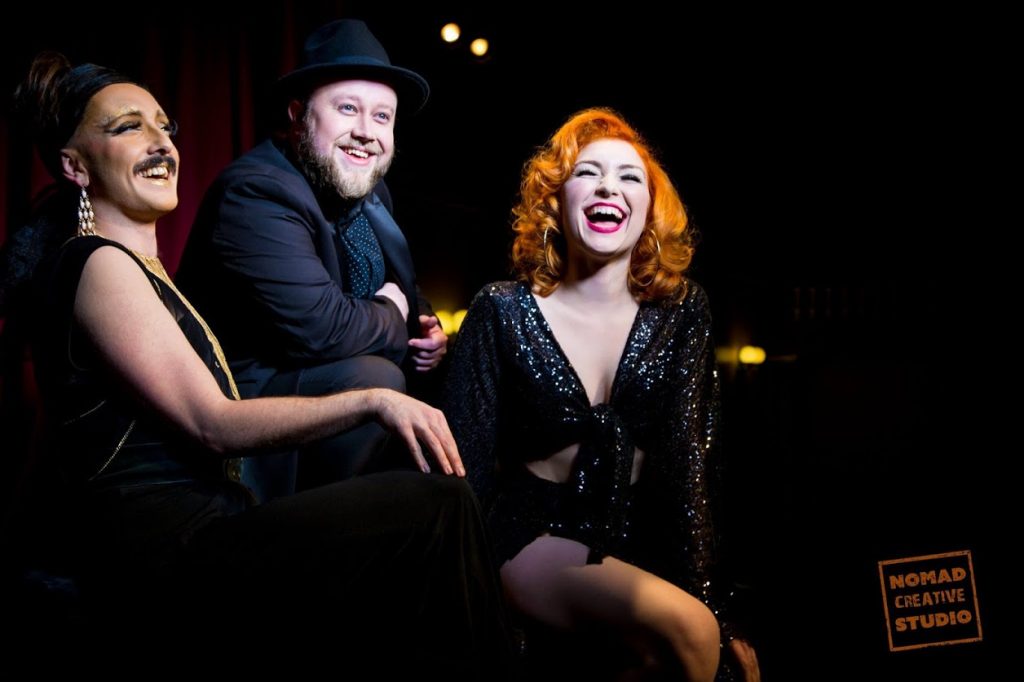
You work with a lot of different artists from a lot of different disciplines. How important is artistic collaboration for you? What do you gain from exploring new creative areas?
I love people and I love learning. Although I’m capable of making work in isolation, it excites me less than collaboration because when we collaborate I’m not just using everything I know and have experienced, but I’m also about to tap into everything my collaborator knows. Photographers, designers, engineers, chemists, painters, composers, dancers – I can’t help but be inspired by the fascinating ways our worlds overlap.
In a lot of my work the audience help to create the show. It’s wonderful and magical being in a production of Shakespeare or a big musical, but there’s an added excitement for me when I can go beyond the imaginary fourth wall of traditional theatre, into a collaboration which includes the audience more – whether it’s improvised comedy, hypnosis, fortune-telling, or mind-reading. That way we tell stories together and we’re all learning.
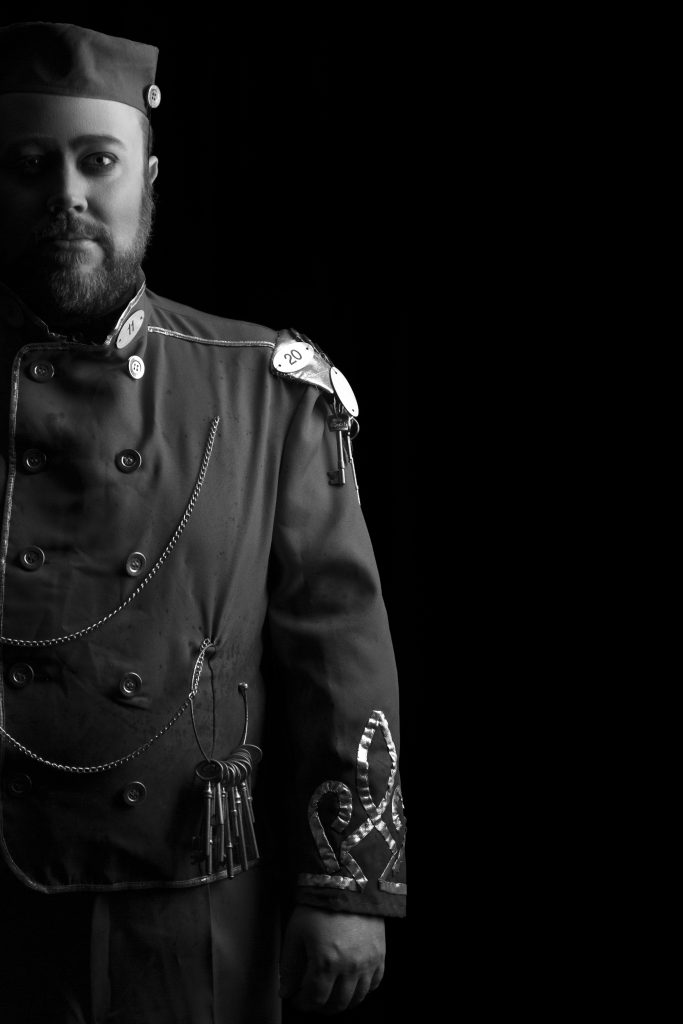
As an actor and performer who slips between identities, what’s the most challenging part of developing and maintaining a persona? Do you have any tricks or routines for getting into character?
Sanford Meisner said “acting is behaving truthfully under imaginary circumstances” and I like that. In a way, I think I’m always just trying to be me, I just have to fully immerse myself in the situation in which this new version of me finds himself. That might be a version of me who discovers he can make objects float, or it might be a version of me who kidnapped someone, or a version of me in 1930s Berlin making his living running a cabaret. Costume, makeup, props, and set all help cement that altered version of reality around me.
The hardest part is that sometimes those imaginary situations are deeply traumatic – in theatre I’ve had to put myself into the shoes of people who have done truly terrible things, which breaks my heart. It’s hard to stay mentally healthy when accessing such extreme emotions daily but it’s worth it to be able to tell important stories.
I’ve heard you talk about the gaps between art and entertainment. Is there a fine line?
Entertainment is giving the audience a known pleasure, whereas Art is about challenging the audience or transforming them somehow. I think it’s a continuum and we needn’t choose sides, but often we are expected to. I hear Fine Artists criticised for being theatrical, and I hear Hollywood Actors criticised for sharing their personal political opinions. I think Artists can learn from the Entertainers who can nurture and understand an audience, and I think Entertainers can learn from Artists about putting their authentic selves and ideas into their work. It’s a fun filter to look through when creating work and it is an extra variable that we can tinker with.
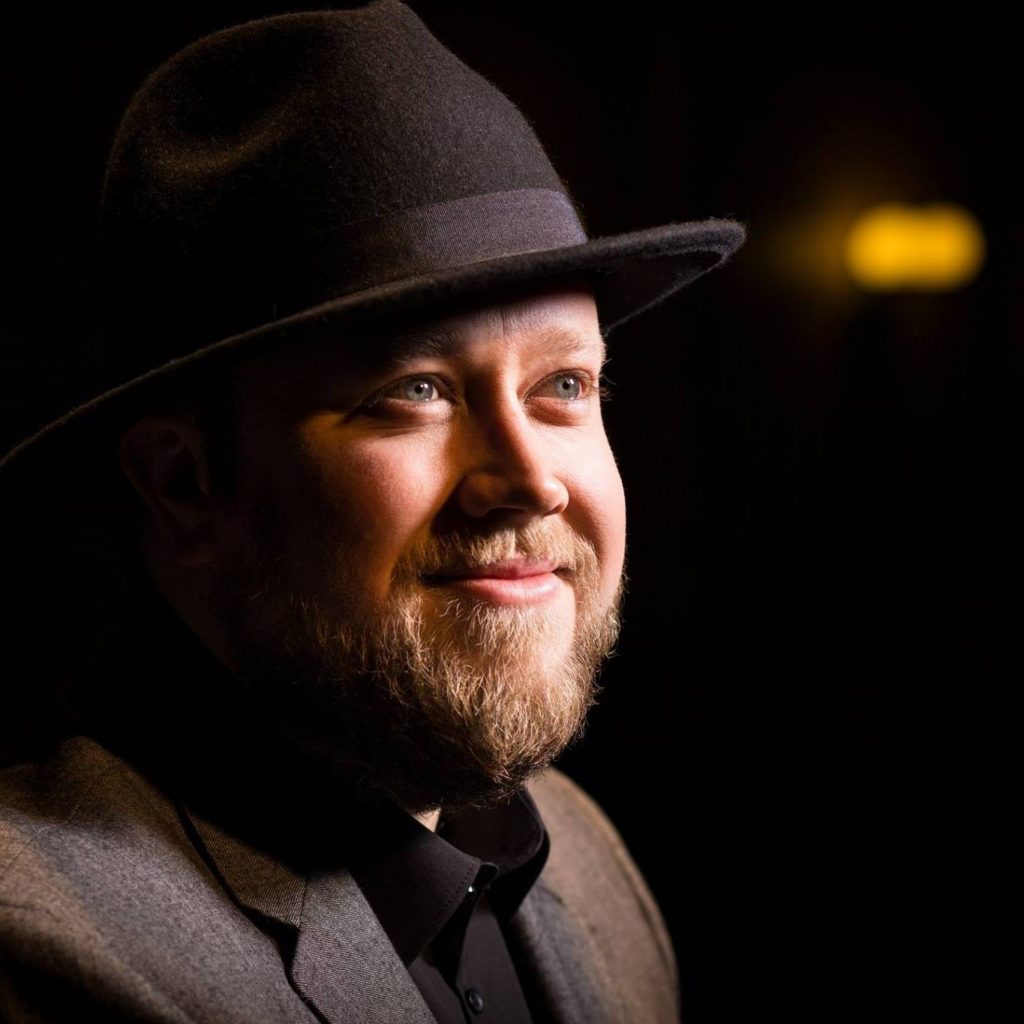
You do a lot of corporate consultation. What strengths and skills do you bring to a world unfamiliar with creativity?
Gosh that’s a loaded question, but I love it! Corporations draw power and strength through efficient aligning of a lot of assets (people, money etc.) around a single goal. It therefore imposes a kind of normative behaviour and language in order for it to be able to move quickly. If it’s set up right, all their efforts align and accomplish more than would be possible as individuals. There are plenty “good” organisations, and they also tend to be quite creative. It only becomes toxic if it has a culture that fears change, punishes honest mistakes, and discourages people from solving problems in new ways – that’s a recipe for stagnation, demotivation, losses and sadness.
I went to the University of Bath to get a degree in International Management and French so I could understand how to get dozens, or even hundreds of thousands of people to collaborate well, including collaborating across borders and language barriers. Usually what companies need from me is to learn how to get storytelling, curiosity, and experimentation back into the heart of their culture. Those are the seeds of change, resilience, opportunism, innovation and growth. It’s all backed-up by research, so bringing me in to stimulate that is an instant competitive advantage, and financially a no-brainer (as well as usually being a hoot and a half).
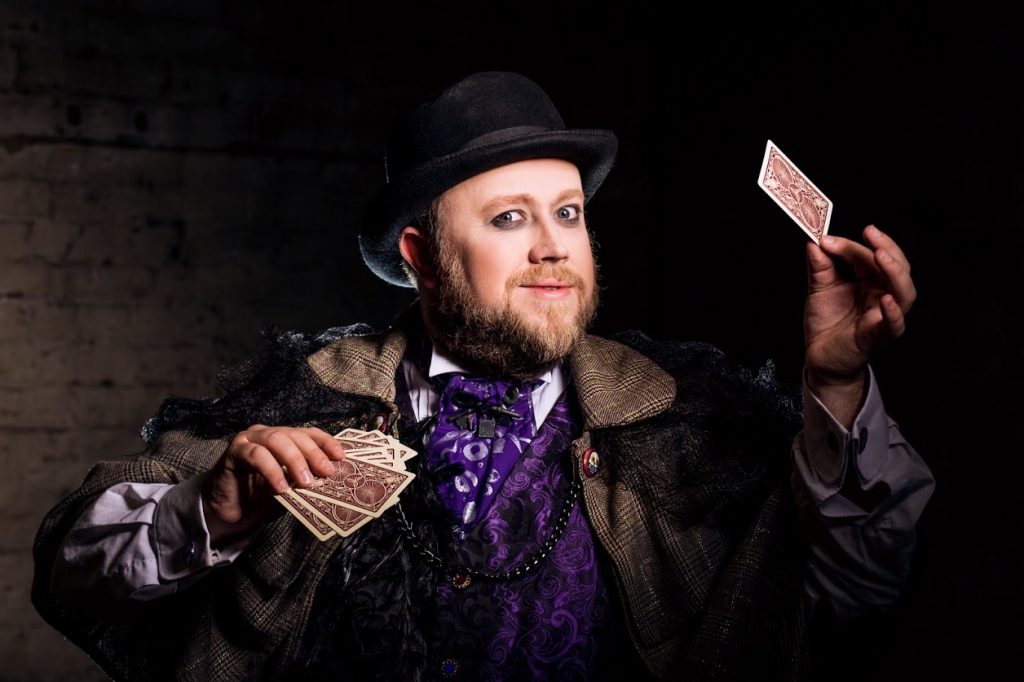
What’s the best piece of advice you’ve ever received?
I’ve received LOTS of great advice, but here are two of my favourites.
1. Hang out with winners. You pick up habits and attitudes from the people around you, so spend time with people who are fun, inspiring, and who are determined to live life to its fullest.
2. A good plan today is better than a perfect plan tomorrow. Get started with 80% of a plan, otherwise you’ll spend your life waiting for the right time to begin.
Is there anything you’re afraid of as an artist? How do you overcome that fear?
I used to fear being unkind to the audience and hurting nice people with my work. I hate comedy that is at the expense of anyone and is cruel. I worried I’d accidentally be unkind. The solution is simply to just put the work in. I research everything in my work as thoroughly as I can, and I take the time to ensure I present it in a way that cannot be misunderstood. In my heart I’m a kind person, so if I’ve done my homework and communicated clearly, my work will reflect that. If I ever have a doubt about my material then I know it’s not ready – it’s easy to go away and do more work, it’s impossible to un-say something hurtful.
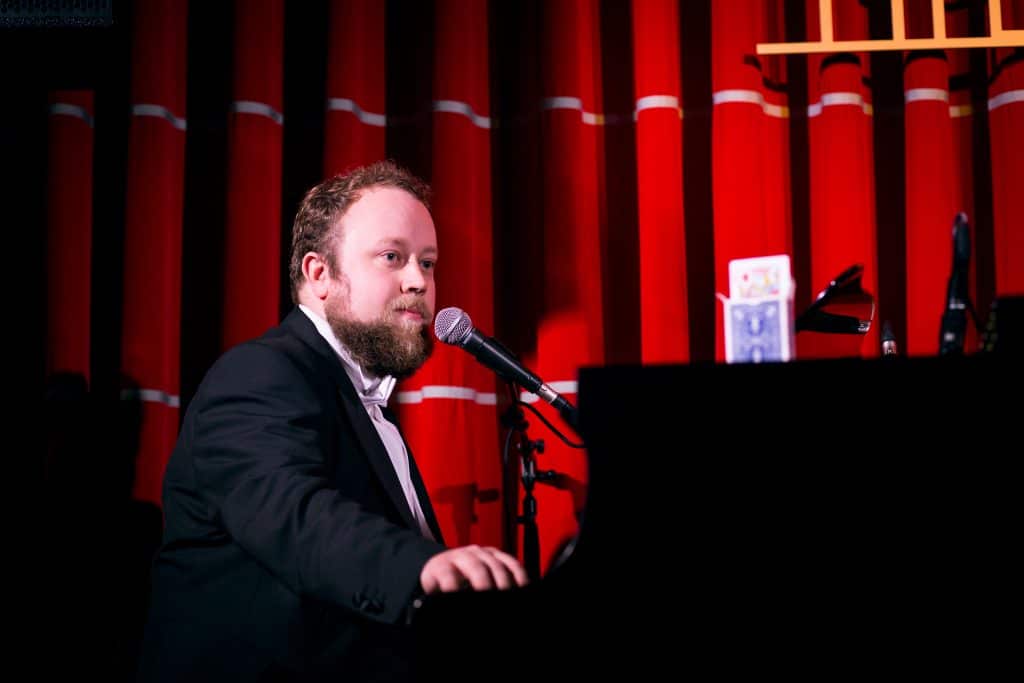
What’s next?
This month we’re putting finishing touches to a show at The Old Vic Theatre that I’m helping to make more “magical”. I’m doing a handful of performances in Cabarets around London, and I am doing a few days consultancy for a big IT company who are expanding into new markets. I’m also co-writing a book for magicians with my very good friend Ben Hart which will be published later this year.
On top of that I’ve got a very big multimedia project launching in a few months. We are publishing a beautiful deck of cards which is a totally new concept. It combines Tarot, Oracle and Le Normand systems of divination, and that deck will be the heart of a theatre show which combines live actors with responsive animation. The deck is shuffled before each show so the same story will never be told twice. It’s a massive collaboration with famous artist Andrea Aste, Tarot experts, and it features several renowned performers from mimes and showgirls to strongmen and acrobats. It’s a giant project and it’s really really exciting.
